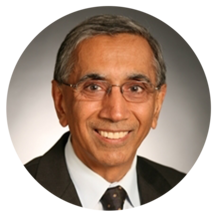About this Presentation
What are the core components of critical chain project management? Should we accept the “generally accepted” solution as being the best or correct solution? The main experience in CCPM speaks to revising task estimation and buffering strategies, establishing the roadrunner task completion behaviors, buffer driven priorities and changing the measurements (to what?) to facilitate the above. The planning processes have historically driven implementation tactics, with an emphasis on software, network building, and education. Successful changes have been built on strong leadership and technical skills. With the holistic implementations, there was an impetus to deliver results sooner and the strategy and tactics approach for projects was created. This was a major breakthrough in the implementation approach, exposing many of the change management obstacles and requirements to make the initiative successful. Many implementers and practitioners use the S&T to improve the speed and quality of their implementations. Still, there is an emphasis on planning and software, so, while there are some results coming much faster, the obstacles of software adoption and learning how to plan using probabilities and buffers remain. If we use the “traditional” approach or the currently accepted S&T for projects, there is an undesirable effect – portfolio and senior executives do not see direct benefits until a critical mass of projects come into the new process. The benefits are organizational; there is little in the process for these executives to improve their managerial effectiveness, and thus, their engagement in the management process is limited and distant. Without this engagement, many implementations fail to realize their potential. In this presentation, we are going to show that the core problem that CCPM solves has little to do with planning. Focusing the transformation initiative on the correct conflict and assumptions immediately engages senior and portfolio managers into the day-to-day process of project execution, improving the decision processes at the senior level, enabling leadership to drive their business, and incorporating the entire organization into the process in a matter of weeks.
What Will You Learn
To help you get the most value from this session, we’ve highlighted a few key points. These takeaways capture the main ideas and practical insights from the presentation, making it easier for you to review, reflect, and apply what you’ve learned.

Instructor(s)
Jennifer Eckman

Ms Alka Wadhwa
Alka Wadhwa is an experienced consultant and process improvement expert with over 24 years of expertise in the Theory of Constraints (TOC), Lean Six Sigma, and organizational performance optimization. She has successfully led projects in healthcare, financial services, and manufacturing, driving significant improvements such as a 67% boost in hospital operations and a 140% increase in outpatient visits.
Previously, Alka Wadhwa spent 17+ years at GE Global Research Center, where she led initiatives to enhance various GE businesses through advanced technologies, process redesign, and system optimization. Founder of Better Solutions Consulting, LLC, she specializes in using TOC, Six Sigma, and data analytics to streamline operations and build high-performance teams.
Her work has earned her multiple accolades, including the Empire State Award of Excellence in healthcare.

Dr Gary Wadhwa
Dr. Gary Wadhwa is a Board Certified Oral & Maxillofacial Surgeon with extensive experience in the field. He completed his Oral & Maxillofacial Surgery training at Montefiore Hospital, Albert Einstein College of Medicine in Bronx, NY, and has served as an Attending at prestigious institutions like St. Peters Hospitals, Ellis Hospital, and Beth Israel Hospital in NY. With a career spanning over two decades, he was the former CEO and President of a group specialty practice in NY from 1994 to 2015. Dr. Wadhwa holds an MBA from UT at Knoxville, TN, and has undergone additional training in System Dynamics at MIT, Health System Management at Harvard Business School, and Entrepreneurship and healthcare innovations at Columbia Business School. Committed to expanding access to Oral & Maxillofacial Surgery care, he is currently engaged in a meaningful project to provide healthcare services to underserved populations in inner city and rural areas through non-profit Community Health Centers.
